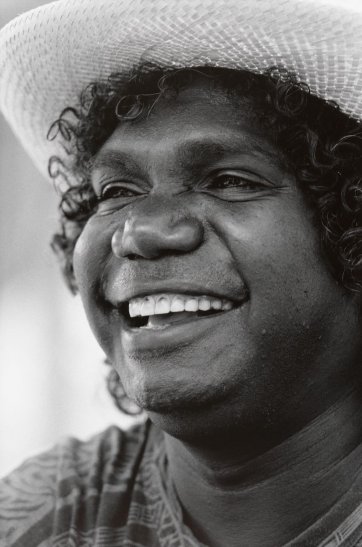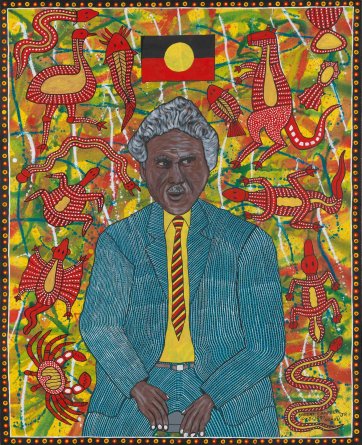Since the inauguration of the Australian of the Year Awards, nine Indigenous people have been acknowledged. The five here have shown remarkable resilience in their leadership and include a number of ‘firsts’: first Indigenous Australia parliamentarian, Senator Neville Bonner (AoY 1979) and first Indigenous Australian woman to head a major government department, Dr Lowitja O’Donoghue (AoY 1984). Spanning two generations – Neville Bonner was born in 1922 and Adam Goodes (AoY 2014) in 1980 – these five recipients have witnessed great changes, although challenges remain: from racism to reconciliation, dispossession to equality of opportunity.
As a teenager, Galarrwuy Yunupingu (AoY 1978) helped his father to write the 1963 Bark Petition to federal government, Australia’s first Land Rights claim. He and several senior Indigenous leaders presented their own bark petition – the Barunga Statement – to Prime Minister Hawke 25 years later. The 1970s saw a more political engagement: Neville Bonner entered federal parliament as a Liberal Senator, Lowitja O’Donoghue was made Chair of the National Aboriginal Council in 1978 and Galarrwuy Yunupingu became Chairman of the Northern Land Council in 1977.
Although education was the primary motivator for Mandawuy Yunupingu as the first Indigenous principal of Yirrkala School, he came to national and international prominence as the lead singer in the band Yothu Yindi and their worldwide hit, ‘Treaty’.
Dual Brownlow Medal winner Adam Goodes’s challenge to endemic racism in Australian football follows the examples set by fellow Indigenous AFL legends, Nicky Winmar and Michael Long.
Their Australian of the Year Awards reflect the commitment and resilience of these Indigenous Australian leaders.

















